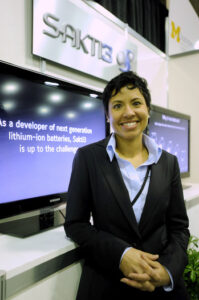Why Dyson is Going All-In on Solid-State Batteries
All-In on Solid-State Batteries
While some experts believe that Dyson gave up on its electric car project, others think that the company is embracing the potential of solid-state batteries for cars. In a recent interview with Autocar magazine, the British company explained why the project was abandoned. He also confirmed that the battery for the electric car still needs work – it is still a long way from being safe and efficient.
The investment in battery technology by Dyson could be the future of the electric car, and it could also be the future of transportation. Solid-state batteries are believed to be safer than li-ion cells, and they can potentially store more energy in a smaller space. One of the companies that has successfully developed such a battery is Dyson, which recently acquired Sakti3.
Manganese Market Analysis by Martin Kepman CEO of Manganese X Energy Corp
The company is now exploring ways to make their batteries more powerful. The move could be a great way for the company to move away from its traditional li-ion batteries and focus on solid-state battery technology. It has previously announced plans to launch an EV that uses a lithium-ion battery, but hasn’t said when it will release the vehicle. The company is planning to produce 10,000 units of the EV, followed by two higher-volume models. The goal is to create something that can stand out in the EV market, so Dyson is likely to go all-in on solid-state batteries.

Why Dyson is Going All-In on Solid-State Batteries
The company has invested $90 million in a solid-state battery startup, Sakti3, which was started by Vincent Bollore, a billionaire who founded the Paris-based Autolib electric car rental service in 2011. The company rented out 2,500 small vehicles powered by LMP batteries. It began in Paris, then spread to other French cities and even expanded to Indianapolis. But the car rental service was shut down in 2018, and the Indianapolis branch of the business was sold in 2019.
The company has a limited timeframe for releasing the electric car. The first batch of cars is a high-end model. It might only release 10,000 cars, but the first two versions are a low-volume version. After that, it will expand its supply chain to include more electric cars with the solid-state battery. If it is successful, Dyson could be the first to commercialize the technology.
The company is stepping up its battery efforts for the EV market. In 2015, it acquired a solid-state battery spin-off from Michigan University for PS150,000. The company hopes to have an EV ready by 2020 with a lithium-ion battery. It would then follow up with two additional higher-volume EVs. In the EV market, Dyson is trying to establish itself as a major player, so it may be able to set itself apart by investing in solid-state batteries.